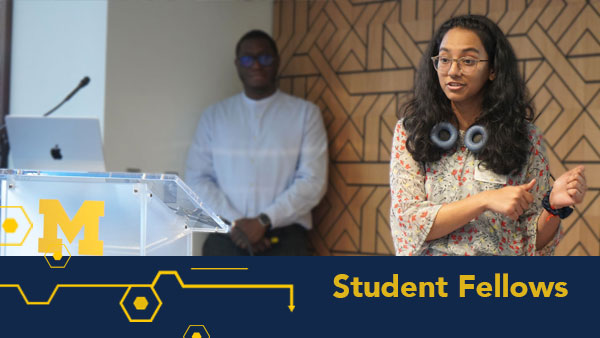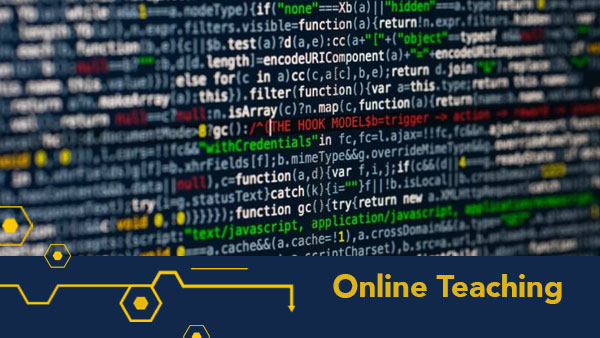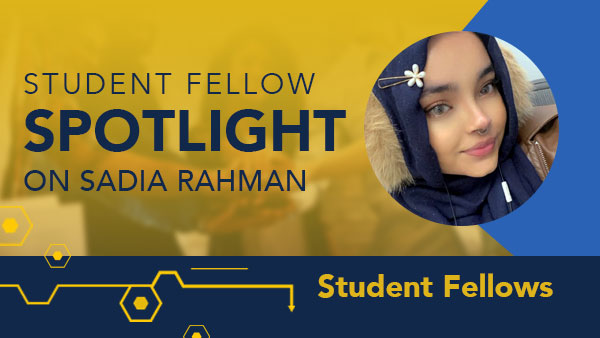Cathy Hearn, Fall & Winter Course Advocate
This is the fourth blog post in a series on the School of Education’s 2018 Winter Cohort initiative. In the first post in this series, Professor Donald Peurach introduced the 2018 Winter Cohort: a learning experience in which University of Michigan graduate students collaborated with online learners from across the globe to complete content from the School of Education’s MicroMasters program in Leading Educational Innovation and Improvement.
In this post, Cathy Hearn takes the 2018 Winter Cohort as case study for the ways in which we can harness educational innovations to further the causes of democratizing and diversifying higher education. Through the 2018 Winter Cohort, the course team strove to provide an accessible, flexible experience, enriched by the perspectives of peers from across an impressive range of national, cultural, and professional settings.
Democratizing Higher Education
The rise of online learning brings with it the prospect of dramatically widening access to education. When this education is designed and delivered by a team at a world-class university, we are talking not only about access, but also about quality. Online education from institutions like the University of Michigan has the potential to provide equal access to a high-quality educational experience to anybody with internet access and a smartphone or computer, where in the past, access to such resources was hindered by barriers of a financial, geographic, social-cultural, or other nature.
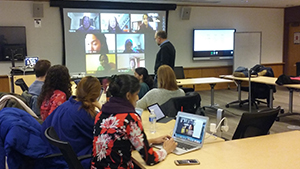 Approximately 11% of the University of Michigan student population are foreign nationals (2015); by contrast, our 2018 Winter Cohort learners came from across five continents. While we did not collect financial data, this geographic range—coupled with the fact that online learners could take the course for free or at a low cost—likely meant our class was more socioeconomically diverse than most at the University of Michigan. Further, our course provided learners across the globe with an opportunity to access knowledge, advanced largely in well-resourced American research institutions, and adapt this learning in support of their local settings.
Approximately 11% of the University of Michigan student population are foreign nationals (2015); by contrast, our 2018 Winter Cohort learners came from across five continents. While we did not collect financial data, this geographic range—coupled with the fact that online learners could take the course for free or at a low cost—likely meant our class was more socioeconomically diverse than most at the University of Michigan. Further, our course provided learners across the globe with an opportunity to access knowledge, advanced largely in well-resourced American research institutions, and adapt this learning in support of their local settings.
In my view, two important priorities across all higher education teaching should be: (1) the inclusion of students taking non-traditional pathways, such as those working full-time or those with children, and (2) the support of learners with diverse learning preferences, including those with learning disabilities. As expected, the majority of our off-campus learners outside of Ann Arbor held jobs alongside their studies, and many spoke of families and other commitments. We also found a significant segment of our Ann Arbor-based learners were also working in addition to their studies. Potentially, they were attracted by the fact that we held class sessions for Ann Arbor-based learners triweekly, and a start time of 5 p.m.
Learners were keen to share the ways in which they used our online resources in ways that better suited their lifestyles and learning preferences: from creative use of technology to visualize their learning, to downloading lectures so they could listen to course content like a podcast during a busy commute. When asked how they viewed the experience, learners characterized it in a variety of ways. They reported that the cohort experience was:
- “very flexible and highly practice-based,”
- like “learning with a group of colleagues who had worked together for years,”
- like “working in a network learning hub,” and
- like “creating a professional team of change warriors.”
One of the strengths of this learning experience was that learners felt the agency to shape their experience into a form that matched their preferences and aspirations.
The Value of Diversity
Opening up our classroom to learners from across the world meant opening up our learners to a diversity of perspectives that served to nuance, challenge, and enrich the learning experience. While diversity manifested itself in a variety of ways, it ultimately amounted to a richness of thought and perspective that would have proved difficult to replicate in a fully residential environment.
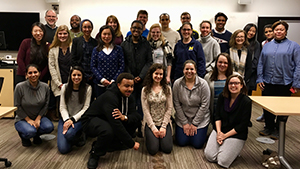 While many of the master’s students at the School of Education are early-career professionals, most with experience in K-12 settings, we found a tremendous diversity of professional experience—both in terms of sector and years served—among our online learners. Our learners benefited from the expertise of professionals working across a variety of sectors and roles, including: vocational and adult educators, policy professionals, educational technology entrepreneurs, and seasoned teachers and administrators from K-12 settings. In interviews and surveys, learners consistently spoke to the benefits of these diverse perspectives, for instance:
While many of the master’s students at the School of Education are early-career professionals, most with experience in K-12 settings, we found a tremendous diversity of professional experience—both in terms of sector and years served—among our online learners. Our learners benefited from the expertise of professionals working across a variety of sectors and roles, including: vocational and adult educators, policy professionals, educational technology entrepreneurs, and seasoned teachers and administrators from K-12 settings. In interviews and surveys, learners consistently spoke to the benefits of these diverse perspectives, for instance:
“I valued the different professional backgrounds of my team members. Being able to connect with individuals from different areas, with different educational backgrounds and professional experiences, was particularly valuable.”
Another of the more visible aspects of our course diversity was in national origin and cultural background. Learners noted several advantages to collaborating with others from across the globe, for example:
“The opportunity, in collaboration with colleagues, to consider improvement science from an international comparative perspective.”
As the University of Michigan continues to establish its status as a university with a positive global reach and impact, I hope we continue to recognize the fact that our international learners are valuable contributors to a richer learning environment for all students.
I’m keen to note that while aspects of identity such as race or socioeconomic status are rightly central to many discussions of diversity in higher education, several of our learners chose to disclose their identities to course colleagues in terms of their professional backgrounds or countries of origin. Since our learners were not required to upload profile photos, disclose financial information, of use their names in their edX user identities, racial and socioeconomic aspects were less immediately apparent in the online portion of our class. In this way, we have discussed the possibility that phenomena such as implicit racial, gender or (dis)ability bias were perhaps slightly mitigated by these features.
Reflection
Throughout the 2018 Winter Cohort initiative, our team consistently engaged in critical evaluation and reflection. We recognize with pride that we worked hard to embrace and valorize the incredible diversity that our course attracted. At the same time, the process had us asking important questions of ourselves:
- Are our course materials too US-centric, or can they be made more relevant for our learners from global contexts? Are there ways that we can empower learners through the creation of such content?
- How can we make sure that we are accessing learners who could stand to benefit the most from our course? How can we support learners in developing the skills necessary to persist and succeed in a demanding online course?
- Are there ways that we can ensure that our courses can be easily adapted by learners with different learning preferences or ability statuses?
Online and hybrid courses like ours provide exciting possibilities for welcoming an ever-wider range of learners to a world-class education. Pushing ourselves to ensure our courses welcome, reflect, and embrace this diversity means pushing ourselves to create a stronger learning experience for all participants.
Read these other blog posts from the 2018 Winter Cohort of the University of Michigan’s Leading Educational Innovation and Improvement MicroMasters program:
- Join Us in Leading Educational Innovation and Improvement
- Celebrating Leading Educational Innovation and Improvement!
- Four Keys to Managing Collaborative Teamwork in a Socially-Engaging Online Course
Connect with the School of Education MicroMasters team: @UMLeadEdHub.
